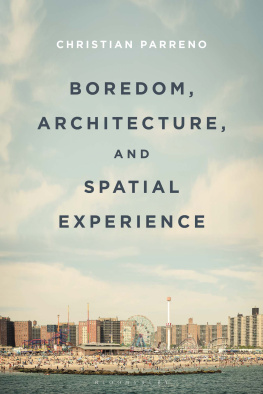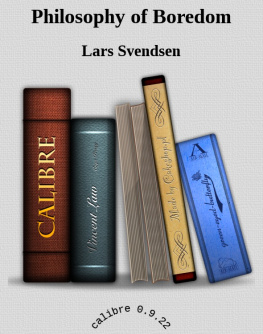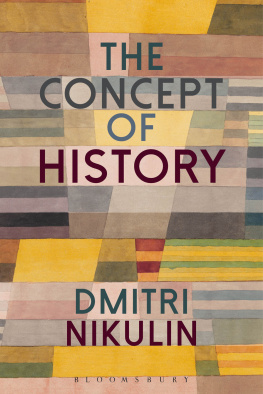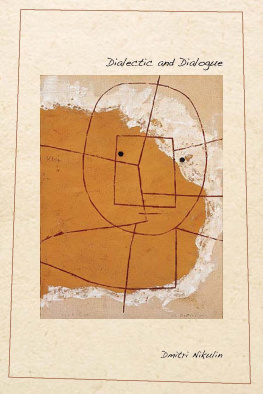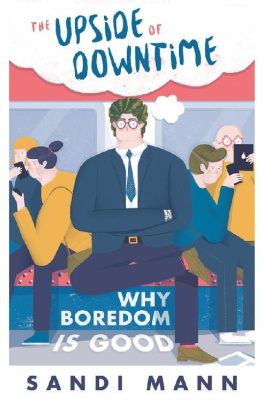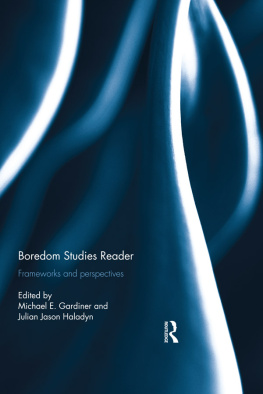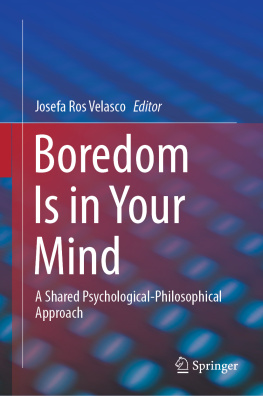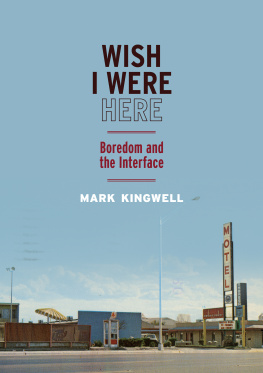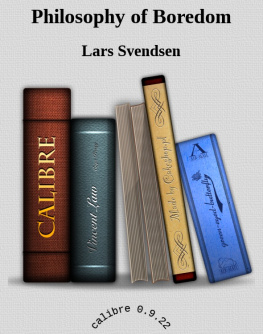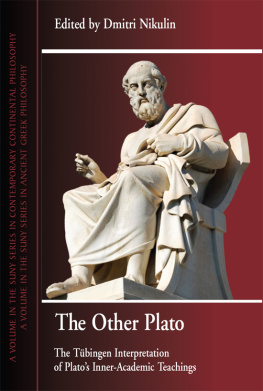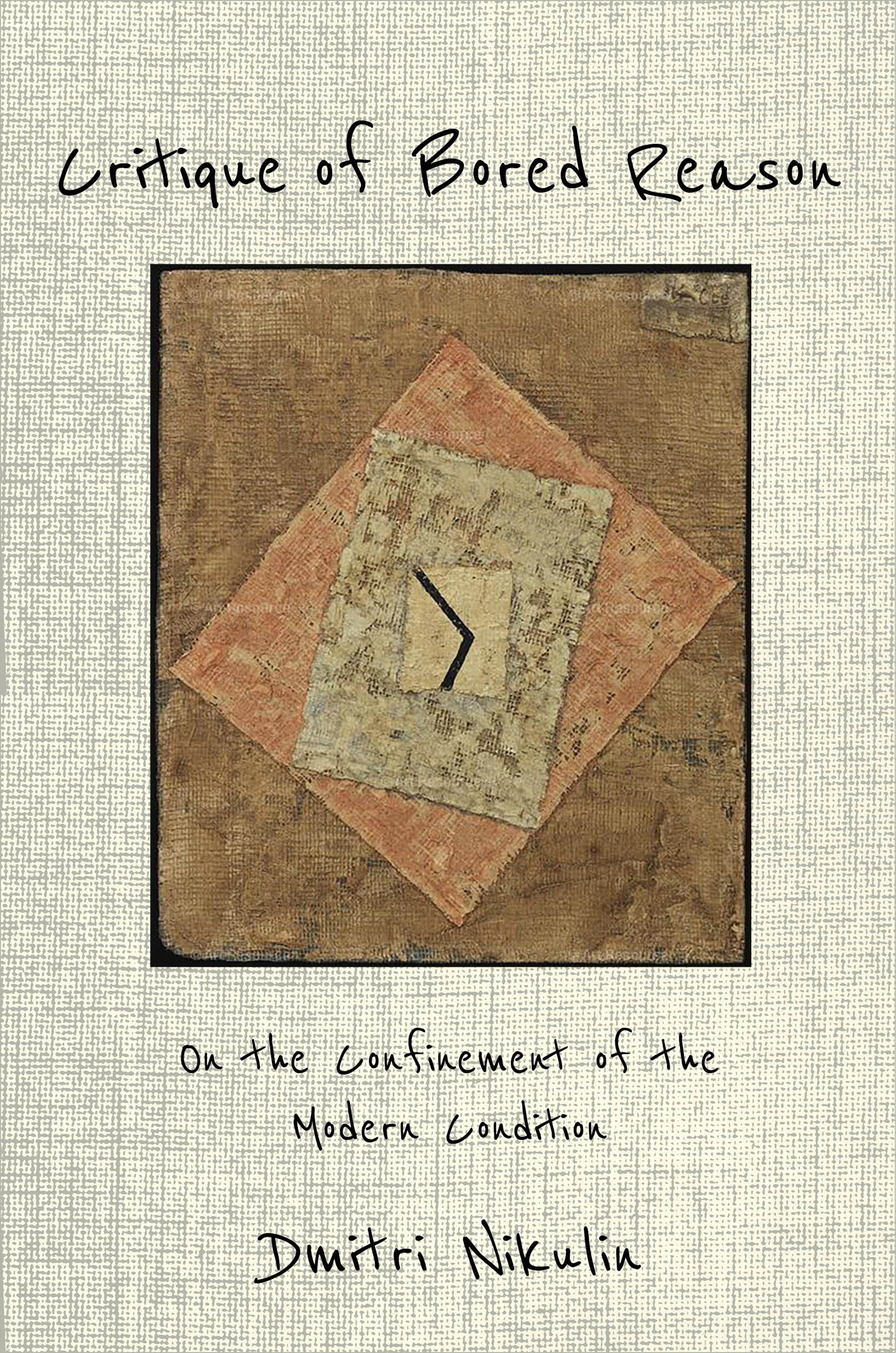Contents
Guide
Pagebreaks of the print version
CRITIQUE OF BORED REASON

CRITIQUE OF BORED REASON
On the Confinement of the Modern Condition
DMITRI NIKULIN
Columbia University Press
New York

Columbia University Press
Publishers Since 1893
New YorkChichester, West Sussex
cup.columbia.edu
Copyright 2022 Columbia University Press
All rights reserved
E-ISBN 978-0-231-54815-1
Library of Congress Cataloging-in-Publication Data
Names: Nikulin, Dmitri, author.
Title: Critique of bored reason: on the confinement of the modern condition / Dmitri Nikulin.
Description: New York : Columbia University Press, 2021. | Includes bibliographical references and index.
Identifiers: LCCN 2021011178 (print) | LCCN 2021011179 (ebook) | ISBN 9780231189064 (hardback) | ISBN 9780231189071 (trade paperback)
Subjects: LCSH: Philosophy, Modern. | Boredom. | Philosophy, Ancient.
Classification: LCC B791 .N55 2021 (print) | LCC B791 (ebook) | DDC 128/.37dc23
LC record available at https://lccn.loc.gov/2021011178
LC ebook record available at https://lccn.loc.gov/2021011179
A Columbia University Press E-book.
CUP would be pleased to hear about your reading experience with this e-book at .
Cover design: Julia Kushnirsky
Cover image: Paul Klee, The Time. Copyright 2021 Artists Rights Society (ARS), New York.
Contents
T his book is a critique of bored reason. Obviously, if reason is pure thinkingeither thinking itself as its other in logical categories or thinking the relationships with others, or the other of the world, in its propertiesthen it should not be bored. Reason can be bored only if it has nothing other than itself, which it establishes, and has a history of being only with itself, which it reflectively studies. While almost all philosophical concepts originate in classical antiquity and live on through various, sometimes unexpected, historical transformations, boredom is unique in that there is not even a word for it in classical Greek. The discussion of boredom is conspicuously absent from ancient thought. My claim, therefore, is that boredom and reflection on it arise properly only in modernityin the wake of the emergence of the modern subject. Everyone gets bored once in a while, not only people of all ages and cultures but also animals, yet boredom becomes the pervasive mood of existence and the proprium of the subject only in modernity.
Modernity is a complex set of interacting and interwoven social, cultural, political, and historical processes and phenomena that establish, define, and describe theoretical cognition, practical action, and productive activity. Among the concepts that determine it, perhaps the central and most significant is that of the modern subject, which is internalized by us and through which we perceive and construct our social, natural, political, and psychological reality. The modern subject establishes itself as universal, rational, and necessary, and understands itself as self-defined by (excessive) reflexivity and self-awareness. Being a historical (self-)construction, it considers itself as its own transhistorical achievement in history, which is ultimately produced by itself. Most importantly, the modern subject realizes itself as autonomous, as self-legislating and self-sufficient, uniquely asserting a normatively binding moral law, which is meant to be universalized and appropriated by each. And yet, such a subject makes the otherness of others only a task to be achieved, and in this way renders interlocutors redundant in theoretical investigation and practical action.
In this way, the modern subject releases itself from the bond of and with others. It is always a singular collective without and outside of plurality. Exclusive of others, the modern subject is the only actor in and of the theoretical, practical, and productive drama of modernity, being its protagonist, playwright, director, and spectator at the same time. In the absence of others, the modern subject is utterly lonely, solitary, and monological in its being and thought. Hence, it is inevitably bored.
The philosophical study of boredom, therefore, is also a critique of the concept of the modern subject as the realization of universal reason in its transformations and vicissitudes. Being very familiar, boredom is utterly unfamiliar. Boredom is an evasive concept and is thus difficult to grasp and inquire into. Indeed, it is difficult to understand the proper question to be asked about it, which is why it comes under a different name even in closely related languages (tdio, noia, aburrimiento). One might make a distinction between passion as a natural physiological phenomenon experienced by all humans at all timesand emotion as a culturally processed and trained passion. While the basic or universal passions might be relatively few, Yet, as I argue throughout the book, boredom is not a mental state or a psychological emotion but rather the inalienable proprium of the modern subject, which does not define the subject in its essence, since the modern subject does not have an essence beyond what it freely and autonomously assigns to itself; rather, boredom is that without which the subject cannot be thought and with which it is mutually substitutable. Paraphrasing Aristotle, one can say: if modern subject, bored; if bored, modern subject. In this sense, boredom constitutes the very conditio moderna.
In its historical rendering, boredom is the response to the improper or inauthentic existence of the contemporary bourgeois city dweller, who is thus caught in the net of boredom, which signifies the utter inadequacy of their existence. Boredom is thus a very modern phenomenon that lies deep in the constitution of modern life and cannot easily be uprooted. Rather, boredom needs to be carefully analyzed as a profound symptom of the crisis of our time and a sign of our situation of being withor withoutothers, and inor outsidethe world.
For this reason, there is much interest in boredom, which is perceived in the nineteenth century as le mal du sicle, and which becomes a prominent theme in its literature, defining the characters and alter egos of Goncharov, Dostoevsky, Flaubert, and Baudelaire.
The reflection on boredom in philosophy is already important in Pascal and Kant, and becomes central to Simmel, Kracauer, Heidegger, and Benjamin, who all critically explore and attempt to overcome the construction of the modern subject, bored with itself in its regal solitude. In discussing their works, I intend to show that, despite their differences, they all share an understanding of boredom as symptomatic of our situation in the social, political, and natural world as it has been historically defined by the construction of the modern subject. If philosophy is indeed a heteroreflection in that it reflects on something that is not its own, on a radically different other than thought, one could say that philosophy always thinks the improperthat which should not, and perhaps even cannot, be thought. This improper, then, is the proprium of modern thought, which is boredom. As such, it can only be considered by unthinking the (usual) thought, or even by not thinking. Therefore, as both Kracauer and Heidegger agree, since we cannot overcome the deep rootedness of boredom in our own being, we should embrace it. This might then lead to a profound and nonboring experience that would become (re)defining of our being, perhaps even beyond description and thought. However, each one does this in his own way: Heidegger by heroically committing himself to the expectation of a novel possibility that would reveal itself from within the depth of our Dasein in the resolute moment of vision, and Kracauer by lying determinedly on a sofa.


